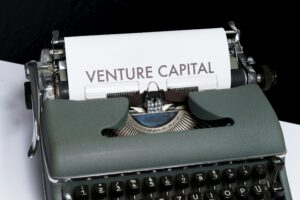When Matt Krna launched Two Meter Capital earlier this year, he made an unconventional decision: instead of building a traditional team of analysts to oversee his portfolio of over 190 companies, he turned to artificial intelligence. The AI systems handle most of the routine portfolio oversight—monitoring company performance and predicting fundraising timelines. According to Krna’s calculations, this approach allowed him to operate with half the staff he would have otherwise required.
“We’re seeing personnel efficiency gains where you’d typically need six analysts, now you need three,” Krna explained. “Venture funds are increasingly adopting AI as an essential operational tool.”
From Funding AI to Being Transformed by It
For two years, Silicon Valley has been obsessed with artificial intelligence, with venture capitalists scrambling to back every promising AI startup. But now the technology is turning inward, reshaping the venture capital industry itself. This transformation is making an already competitive field even harder for young professionals to enter while fundamentally altering how early-stage companies secure funding.
While pioneering firms like Correlation Ventures, 645 Ventures, and Fly Ventures have long incorporated data analytics and AI into their investment strategies, recent technological breakthroughs are democratizing these capabilities across the industry. SignalFire, a San Francisco-based firm that has been at the forefront of data-driven investing, built a sophisticated platform years ago that monitors over 10 million data points. Now, multiple venture capitalists report that similar AI capabilities are becoming mainstream.
The Competitive Intelligence Race
Sri Chandrasekar, managing partner at Point72 Ventures, recently experienced firsthand how AI is changing competitive dynamics. When one of his portfolio companies had an exceptionally successful week, he expected to have privileged insight as an insider with access to internal weekly metrics. Instead, he was startled to see numerous other firms simultaneously reaching out to the company.
“That’s no coincidence,” Chandrasekar observed. “There are digital signals scattered across the internet that, when properly analyzed, can reveal when a company is having a breakthrough week. Somehow seven different funds all contacted them during that exact period.”
While Chandrasekar wouldn’t disclose the specific company or metrics involved, he noted these signals might include factors like product adoption rates or aggressive sales team expansion. His prediction is stark: firms that don’t leverage AI for deal sourcing will fall behind. The technology’s impact on junior roles will depend on leadership priorities.
“Some general partners will pursue broader market coverage with existing headcount, while others will simply reduce staff,” Chandrasekar said. “Personally, I prefer enhanced coverage capabilities to evaluate more promising opportunities.”
Finding Hidden Gems
Bain Capital Ventures, which oversees $160 billion through its parent company Bain Capital, recently developed a machine-learning system that identifies rapidly growing companies deserving closer examination by investment partners.
Christina Melas-Kyriazi, a Bain Capital Ventures partner specializing in fintech and application software, credits the model with surfacing a compelling startup that would have otherwise escaped her attention because it operated outside traditional tech hubs.
“The system flagged this company’s exceptional growth trajectory and remarkable user engagement metrics,” Melas-Kyriazi explained. “We immediately arranged a meeting with the founder and ultimately invested. Without that model, this opportunity would have been completely invisible to us.”
The Coming Reduction in Support Staff
Beyond investment teams, Chandrasekar anticipates AI will slash back-office operations—including human resources, administration, and financial reporting—by more than half.
“Visit any venture firm’s website and you’ll notice approximately half the listed employees have nothing to do with investments,” Chandrasekar noted. “AI will dramatically impact corporate back offices across every company.”
The scale of major firms has grown substantially. Andreessen Horowitz employs over 500 people, with its investment team expanding 170% between 2017 and 2021. LinkedIn data shows General Catalyst employs 259 people, while Lightspeed maintains a staff of 300.
“The major firms experienced tremendous growth over recent years,” observed Andy McLoughlin, managing partner at Uncork Capital.
Last year, James Currier, general partner at NFX, published an influential piece arguing that AI would democratize venture investing over the next decade, similar to how software transformed stock and bond trading over the past four decades.
“Let’s be candid: typical venture capitalist activities—reading, summarizing, and evaluating—are precisely what large language models excel at,” Currier wrote. “We’re entering the final decade of venture capital as we currently know it. AI will fundamentally restructure the startup ecosystem from its foundation. Venture firms must transform into hybrid organizations combining human insight with artificial intelligence.”
The Human Element Remains Critical
Despite these changes, most VC firms aren’t particularly large to begin with. According to Deloitte research, the average venture firm employs just 14 people.
“They’re already quite lean,” said a partner at a major firm who requested anonymity, speaking from a spacious conference room in their modern, largely unoccupied San Francisco office. “Could you operate with fewer people? What would be the point? The returns are already exceptional.”
Those returns depend partly on charging substantial management fees for the perceived mystique of venture investing, which most VCs maintain relies fundamentally on intuition, judgment, and personal relationships that AI cannot replicate.
“This remains fundamentally a people business,” McLoughlin emphasized. “Founders want to work with humans.”
Uncork Capital employs only one associate, and McLoughlin has no plans to replace her with AI.
“She certainly uses various AI tools, but her real value comes from exceptional intelligence and thorough training,” he said.
Human expertise proves especially irreplaceable at the earliest investment stages, where opportunities often exist as nascent ideas with minimal data for AI systems to analyze.
“AI struggles with analyzing unprecedented situations, and the most successful venture outcomes typically break established patterns,” Melas-Kyriazi noted.
Relationships Trump Algorithms
Ultimately, venture capital success isn’t about identifying the best deals—it’s about winning them. That requires genuine personal connections between founders and investors, Chandrasekar emphasized.
“The primary reason founders select you is personal compatibility,” he explained. “You invest time building authentic relationships. You share meals together. You meet their families—whatever it takes to make them genuinely want to partner with you for what could be a decade-long journey.”
Machines remain far from replicating that human dimension.








